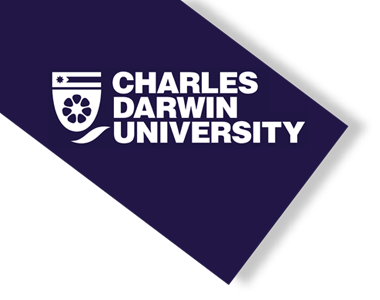Bachelor of Engineering Honours
Charles Darwin University
About
The Bachelor of Engineering Honours will provide you with an advanced conceptual understanding of the science and its application to engineering, followed by an advanced specialist knowledge of the theory and practice of civil and structural, electrical and electronics or mechanical engineering.
The course will help you to develop skills for the planning and execution of engineering projects or research to advance the scientific basis of the discipline.
The course specifically offers you hands-on practical experience, which will assist you in your future career as a professional engineer.
This course also focuses on essential engineering skills including innovation, creativity, research, management, teamwork and leadership.
This course was developed in consultation with and is supported by industry leaders.
You graduate with the foundation of engineering knowledge which directly aligns with international industry requirements.
As a professional civil and structural engineer, you will be able to combine traditional and current construction methods with creativity and innovation including the design and management of structures for the modern world.
Your studies will focus on developing sustainable and ethical civil and structural solutions in areas such as structural engineering, water and roads and traffic and its uses and principles of sustainability.
As a professional electrical and electronics engineer, you will be able to fulfil major roles in the design, automation and control of devices which make modern life convenient.
You will be involved in electronics, telecommunications, biomedical applications and power generation, storage and distribution, including renewable energy.
You will develop skills in communication methods, electronic control systems and power engineering, together with a background of sustainable engineering principles.
As a professional mechanical engineer, you will be able to have a major role in the design and construction of equipment for improved transport, and to provide affordable manufacturing and production solutions for the manufacturing industry.
Key areas include biomechanical applications, aeroplanes, cars, pumps, pipelines and air conditioning systems.
Structure
Common Units(2 units) - 20cp
Common units totalling 20 credit points as detailed below. CUC107 Cultural Intelligence and Capability CUC106 Design and Innovation: Communicating Technology Select Common Units to find out more about individual units and advanced standing options.
Core Units(12 units) - 110cp
Compulsory Core units totalling 110 credit points as detailed below.
ENG151 Statics ENG174 Electrical Engineering SMA101 Mathematics 1A SMA102 Mathematics 1B ENG252 Dynamics PMO201 Project Management SMA209 Mathematics 2A SMA211 Mathematics 2B ENG305 Safety, Risk and Reliability IPM300 Industrial Experience (0 credit points) ENG405 Integrated Design Part A ENG417 Sustainability (new title from 2016) ENG142 Concepts of Chemical Engineering (final offering 2019) has been removed as a core unit from 2020 - see transition arrangements below.
Specialist Electives(14 units) - 140cp
Units totalling 140 credit points selected from one of the specialist streams.
Chemical Engineering (no longer available for entry from 2020) SCH101 Chemical Concepts SCH102 Organic and Inorganic Chemistry ENG246 Process Analysis ENG247 Fluid and Thermodynamics ENG248 Unit Operations ENG341 Separation Process Principles ENG364 Materials Engineering ENG406 Integrated Design Part B ENG441 Separation Processes ENG442 Chemical Engineering Thermodynamics ENG443 Reactor Design ENG445 Process Control and Simulation ENG481 Applied Heat and Mass Transfer ENG444 Hydrocarbon Processing or ENG446 Bioprocess Engineering
Civil and Structural Engineering ENG212 Mechanics of Solids ENG215 Surveying and Construction ENG247 Fluid and Thermodynamics ENG267 Hydraulics and Soil Mechanics ENG311 Geomechanics ENG364 Materials Engineering ENG368 Steel and Concrete Structures ENG406 Integrated Design Part B ENG412 Road and Traffic Engineering ENG462 Water Resources Engineering ENG466 Design of Concrete Structures (new title from 2016) ENG467 Design of Steel Structures (new title from 2016) ENG469 Structural Analysis ENG463 Advanced Structural Analysis or ENG464 Geotechnical Engineering
Electrical and Electronics Engineering ENG221 Analogue Electronics ENG223 Electrical Circuit Analysis ENG224 Electrical Machines and Power Systems ENG227 Electromagnetics and Communication Technology HIT235 Digital Systems and Computer Architecture ENG325 Systems Modelling and Control (new title from 2016) HIT332 Embedded and Mobile Systems HIT365 C Programming ENG421 Digital Signal Processing ENG471 Analogue Devices ENG473 Communication Systems (new title from 2016) ENG474 Power Systems Analysis ENG476 Control Engineering (new title from 2016) ENG342 Instrumentation and Control (new title 2018) or ENG429 Biomedical Engineering
Mechanical Engineering ENG212 Mechanics of Solids ENG235 Manufacturing ENG247 Fluid and Thermodynamics ENG325 Systems Modelling and Control (new title from 2016) ENG364 Materials Engineering ENG338 Machine Design Principles ENG432 Dynamics of Engineering Systems ENG487 HVAC Systems ENG476 Control Engineering (new title from 2016) ENG480 Applied Fluid Mechanics ENG481 Applied Heat and Mass Transfer ENG482 Engines and Turbo Machinery ENG486 Machine Design ENG342 Instrumentation and Control (new title 2018) or ENG429 Biomedical Engineering
Research(2 units) - 40cp
ENG720 Honours Thesis (20cp, repeatable) x 2
Honours calculation Units used to define the Honours level gained are successfully completed ENG720 (40cp), ENG405 plus the last three successfully completed ENG4XX core or specialist elective units of the specialist stream chosen by the student.
Elective(1 units) - 10cp
Elective unit totalling 10 credit points selected from undergraduate units offered by the University.
ECO107
(replaces ECO105 from S2 2020)
ENV103
HIT137
HIT164
LAW105
MAN105
SCH104
SPH141
- 320cp
Total Credit Points
Entry requirements
Admission requirements are met by one of the following: Successful completion of the Northern Territory Certificate of Education and Training (or equivalent) and the awarding of an Australian Tertiary Admissions Rank (ATAR) of at least 70*. Successful completion of a national qualification at Certificate IV level or higher. Successful completion of at least 0.5 year of full-time study (or equivalent) of a higher education degree/diploma. Overseas secondary or tertiary qualifications considered equivalent to the above Australian qualifications. Attainment of a STAT Multiple Choice score of 135 (or a score of 145 if prior to May 2010). Successful completion of the Tertiary Enabling Program, the Preparation for Tertiary Success courses, or other recognised tertiary preparation course. Submission of an acceptable personal competencies statement and/or employment experience. * After any applicable adjustment factors have been applied.
Institution
